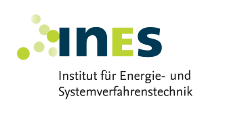Material-structure-property relations in bifunctional electrodes for metal oxygen batteries - homogenous material synthesis and advanced operando analysis
Acronym: MaBiKo
The MaBiKo project aims to understand the material-structure-property relationships in well-designed bifunctional electrodes for metal-oxygen batteries. The results will also be relevant to developers of single cells and battery stacks by reducing production costs. In addition, the project's findings will indirectly improve other systems such as fuel cells and electrolyzers, as they share similar electrode materials and geometries, leading to improved efficiency and durability.
Duration:
02.2023 – 01.2026
Endorser:
BMBF – Bundesministerium für Bildung und Forschung
Im Rahmen der Initiative Batterie 2020 Transfer
